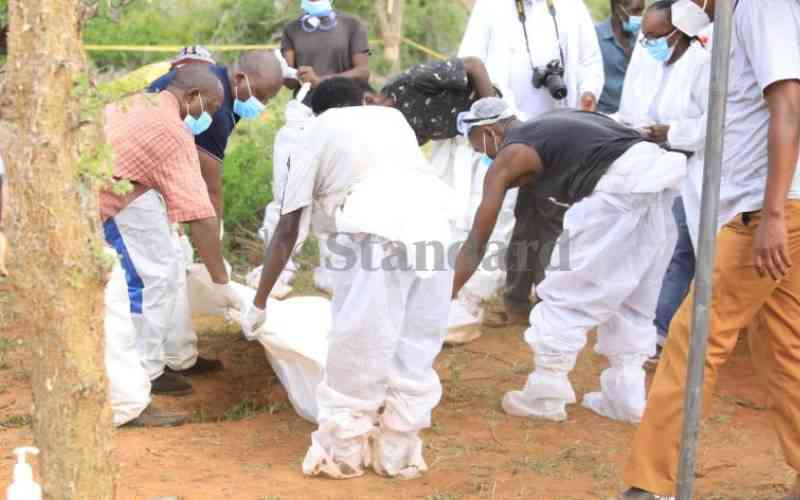×
The Standard e-Paper
Join Thousands Daily

Two weeks after his arrest, the State is grappling with what to charge Pastor Paul Ntenge Makenzi with due to what detectives say is the complex nature and enormity of the crimes he and his accomplices allegedly committed.
The matter has been muddied by the discovery of mass graves at Shakahola which police believe contain remains of parishioners of Mackenzie's Good News International Church, apparently lured to starve to death.